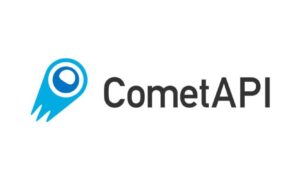May 2025 – As the new financial year unfolds, HR leaders across India face a refreshed set of payroll regulations and compliance expectations. In this shifting landscape, keeping pace with updates is not just important—it’s essential to avoid legal pitfalls and maintain employee trust. Paysquare Consultancy Ltd., India’s leading payroll outsourcing services firm, highlights the key changes and what HR teams must do to stay compliant and efficient in FY 2025–26.
With over 25 years in payroll management and a client base spanning more than 3,000 organizations globally, Paysquare has become a go-to expert for navigating statutory changes. The company’s team of 800+ payroll professionals closely monitors regulatory updates to help clients implement timely and accurate changes.
Key Payroll Changes HR Teams Must Watch in FY 2025–26
- Revised Income Tax Slabs Under the New Regime
The new tax regime continues to see traction, and with recent tweaks announced in Budget 2025, employees now face more choices—and more confusion. Payroll departments must update systems accordingly and offer transparent tax declarations to employees opting in or out of the new regime. - ECR Filing and Provident Fund Compliance
EPFO compliance has been tightened, especially with respect to Universal Account Numbers (UANs) and error-free ECR filing. Inaccuracies or delays in submission can now attract financial penalties, making accurate payroll processing even more critical. - Gratuity and Bonus Act Amendments
Updates in thresholds and calculations under the Payment of Bonus and Payment of Gratuity Acts call for prompt recalibration of payroll software. Paysquare clients benefit from automated adjustments that ensure these updates are seamlessly implemented. - State-wise Labour Law Adjustments
Labour laws continue to vary across states, affecting leave policies, professional tax, and minimum wage calculations. For companies operating in multiple states—or across borders—standardizing payroll without local knowledge is risky.
The Risk of Non-Compliance Is Real
Non-compliance isn’t just a red tape issue. It leads to penalties, audits, and most importantly, trust erosion. According to industry data, nearly 60% of payroll errors stem from delayed implementation of regulatory changes.
“HR departments have enough on their plates. Constantly tracking compliance changes across states and laws only adds to the burden. That’s where we step in,” says Rakesh Jain, Founder and CEO of Paysquare.
Paysquare: The Partner for a Hassle-Free Payroll Year
Paysquare’s tech-enabled payroll engine is designed for real-time updates and accuracy. The firm provides:
- Automated Statutory Compliance Checks
- Multi-country Payroll Processing
- Custom Reports for HR and Finance Teams
- Employee Portals for Salary Slips and Tax Declarations
Their clients—ranging from fast-growing startups to multinational corporations—report up to 40% improvement in payroll accuracy and 100% on-time compliance filing after switching to Paysquare.
As Jain notes, “The beginning of a new financial year is a great time for HR leaders to assess their payroll operations and ask: Is this scalable? Is this compliant? Is this stress-free?”
With ever-evolving regulations and increased scrutiny, HR departments cannot afford to treat payroll as a back-office task. It’s time to make it a strategic priority—with the right partner by your side.





























